Ranking Canada's Olympic hockey teams from 1998 to 2014
The IIHF unveiled groups for the 2022 Beijing Olympics last week. While it's far from a guarantee the NHL will be participating after skipping out in 2018, it's fair to say Canada would be the favorite if the league decides to partake. After all, Canada has dominated in Olympics featuring NHL players, winning three of a possible five gold medals.
Below, we rank all five of Canada's Olympic men's hockey teams from 1998 to 2014, prioritizing results over personnel.
5. Turin 2006
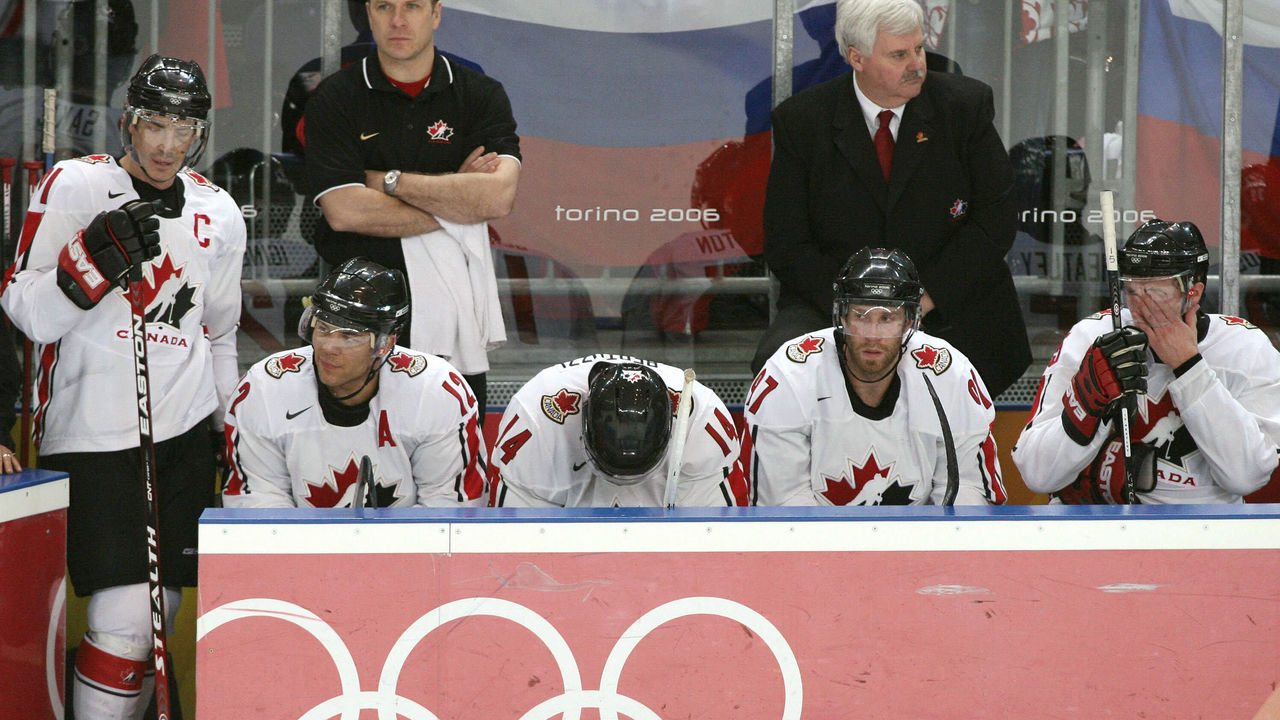
GM: Wayne Gretzky
Coach: Pat Quinn
Finish: Seventh place
Record: 3-3-0
GF-GA: 15-11
Forwards
| LW | C | RW |
|---|---|---|
| Rick Nash | Joe Thornton | Todd Bertuzzi |
| Simon Gagne | Joe Sakic | Jarome Iginla |
| Kris Draper | Brad Richards | Dany Heatley |
| Ryan Smyth | Vincent Lecavalier | Martin St. Louis |
| Shane Doan |
Defense
| LD | RD |
|---|---|
| Wade Redden | Adam Foote |
| Chris Pronger | Jay Bouwmeester |
| Robyn Regehr | Rob Blake |
| Bryan McCabe |
Goaltending
| G |
|---|
| Martin Brodeur |
| Roberto Luongo |
| Marty Turco |
Turin was an all-around disaster. After winning gold at the 2002 Olympics and capturing the 2004 World Cup of Hockey, Canada was heavily favored heading into the tournament.
The Canadians looked destined to repeat after the first two games, taking care of Italy and Germany with ease by a combined score of 12-3. Then the offense dried up.
Both Switzerland and Finland blanked Canada before the team rebounded to squeak out a 3-2 victory over the Czech Republic. A turbulent showing in the group stage meant a tough quarterfinal matchup against Russia, and the Canadians were shut out once again 2-0, ending their gold-medal aspirations.
There were some head-scratching roster choices in 2006. This team was too slow and lacked firepower, with Gretzky opting to go with several veterans instead of younger, faster players such as Sidney Crosby, Eric Staal, and Jason Spezza. Canada also passed on Patrick Marleau, Paul Kariya, Marc Savard, and Dan Boyle.
4. Nagano 1998
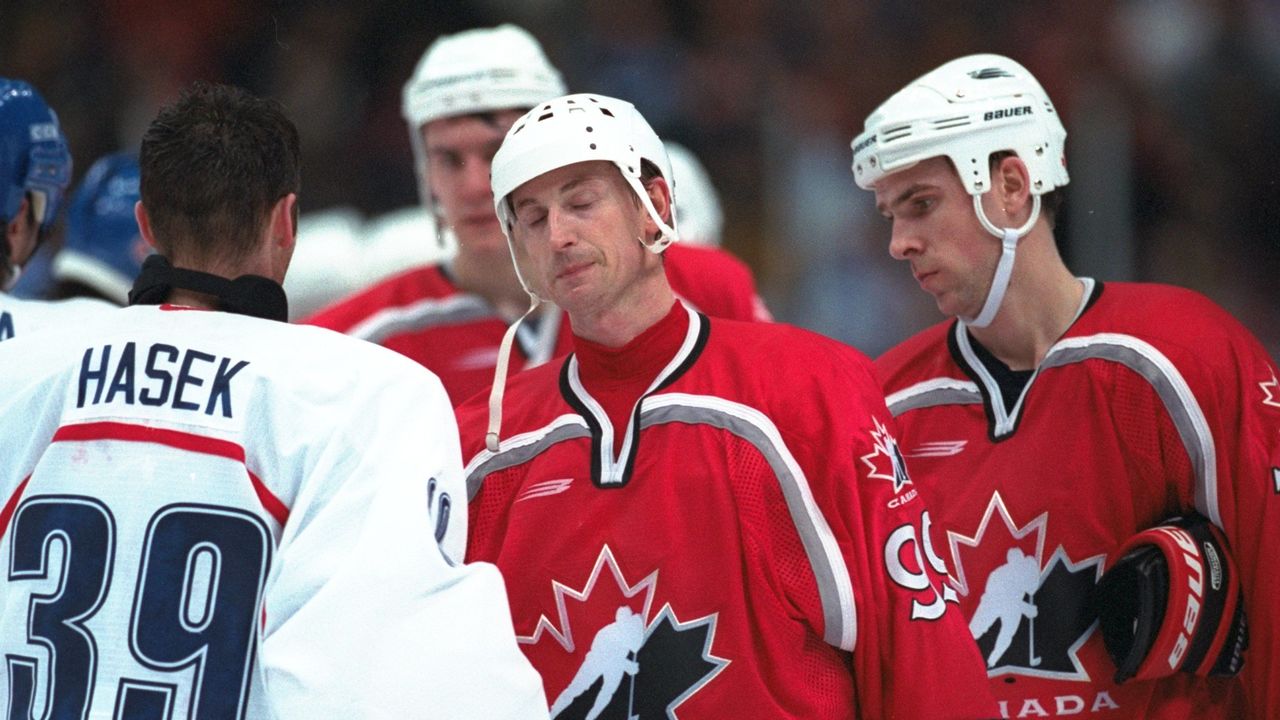
GM: Bobby Clarke
Coach: Marc Crawford
Finish: Fourth place
Record: 4-2-0
GF-GA: 19-9
Forwards
| LW | C | RW |
|---|---|---|
| Brendan Shanahan | Wayne Gretzky | Steve Yzerman |
| Rod Brind'Amour | Eric Lindros | Shayne Corson |
| Joe Nieuwendyk | Joe Sakic | Theo Fleury |
| Rob Zamuner | Keith Primeau | Trevor Linden |
| Mark Recchi |
Defense
| LD | RD |
|---|---|
| Chris Pronger | Adam Foote |
| Ray Bourque | Al MacInnis |
| Scott Stevens | Rob Blake |
| Eric Desjardins |
Goaltending
| G |
|---|
| Patrick Roy |
| Martin Brodeur |
| Curtis Joseph |
While this loaded squad didn't take gold, it gets some unwarranted flack.
Canada dominated the group stage, beating Belarus 5-1, Sweden 3-2, and the United States 4-1 to finish atop Group D. The team handled Kazakhstan in the quarterfinals before running into Dominik Hasek - arguably the best goaltender of all time at the peak of his powers - in the semis, losing 2-1 in the shootout to the Czech Republic. Canada would also drop the bronze-medal game to Finland 3-2.
The lasting memory for most Canadians is Gretzky - who wasn't picked for the shootout against the Czech Republic - sitting on the bench after the stunning defeat. However, the most perplexing decision Canada made was taking a grinder like Rob Zamuner over Hall of Famers Mark Messier, Ron Francis, and Adam Oates.
Choosing Desjardins over Scott Niedermayer was probably the wrong call, too. It also didn't help that Paul Kariya was out with a concussion, and Joe Sakic got hurt in the quarters and didn't return.
3. Vancouver 2010
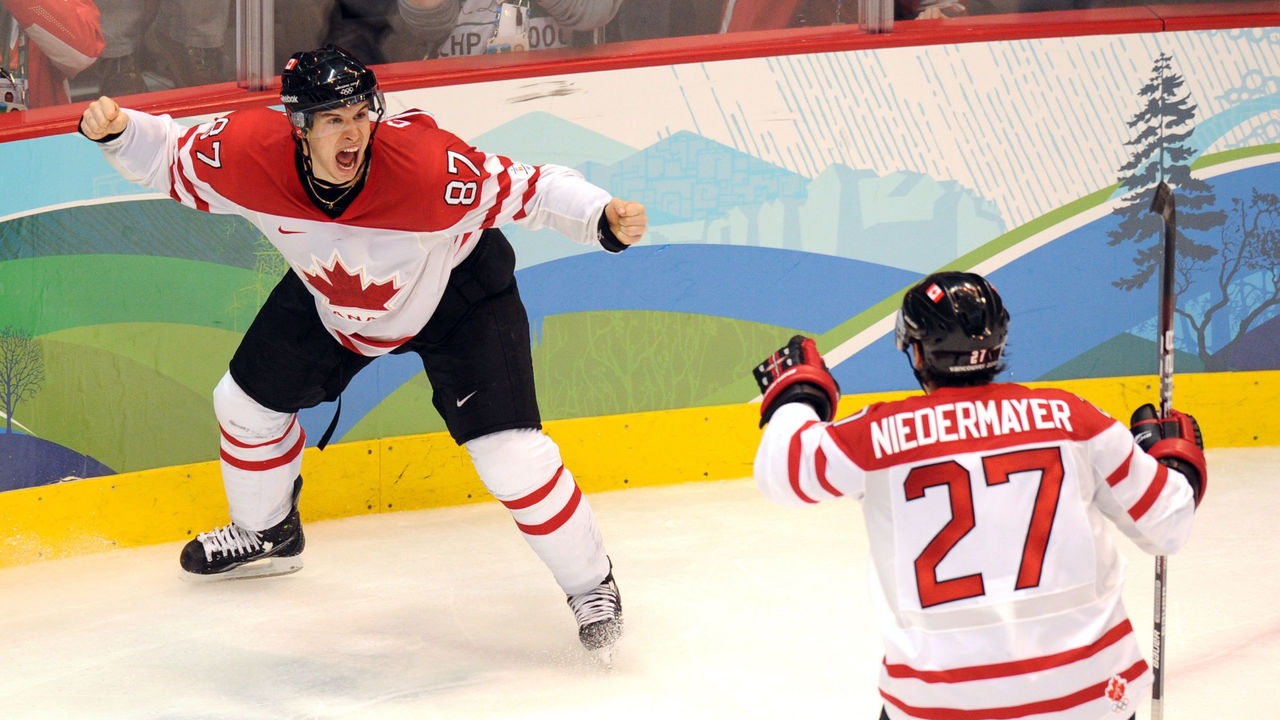
GM: Steve Yzerman
Coach: Mike Babcock
Finish: Gold
Record: 4-2-0-1
GF-GA: 35-16
Forwards
| LW | C | RW |
|---|---|---|
| Eric Staal | Sidney Crosby | Jarome Iginla |
| Brendan Morrow | Ryan Getzlaf | Corey Perry |
| Patrick Marleau | Joe Thornton | Dany Heatley |
| Rick Nash | Jonathan Toews | Mike Richards |
| Patrice Bergeron |
Defense
| LD | RD |
|---|---|
| Scott Niedermayer | Chris Pronger |
| Duncan Keith | Drew Doughty |
| Shea Weber | Dan Boyle |
| Brent Seabrook |
Goaltending
| G |
|---|
| Roberto Luongo |
| Martin Brodeur |
| Marc-Andre Fleury |
Choosing Canada's worst gold-medal winning team is a tough task, as all three squads were loaded with several future Hall of Famers. The 2010 team was no exception, but it comes in third on this list, as the top two teams finished in a more decisive fashion.
The preliminary round was a grind for Canada, despite home-ice advantage in Vancouver. The Canadians lit up Norway 8-0, narrowly escaped with a 3-2 shootout victory over Switzerland, and lost 5-3 to the United States.
The underwhelming group-stage performance forced Canada into a qualification game, and it handled Germany with ease 8-2. Canada was then pitted against a high-powered Russian team fresh off a bye in the quarters. The Canadians played their best game of the tournament, though, scoring four first-period goals en route to a 7-3 blowout.
Canada's final two games were edge-of-your-seat nail-biters. It looked like the team's semifinal matchup against Slovakia would be a cakewalk, especially after jumping out to a 3-0 lead. But the Slovaks cut the deficit to 3-2, and then Pavol Demitra, who led the tournament in scoring, missed a wide-open net in the waning seconds, and scoring then could've changed the course of history.
The gold-medal game was a rematch of the '02 final against the Americans, and it became an instant classic. Canada jumped out 2-0 with goals from Toews and Perry, but the U.S. chopped the lead in half through a tally from Ryan Kesler. Zach Parise scored to force overtime with just 25 seconds left in the third period, and then Crosby buried the famous golden goal.
2. Salt Lake City 2002
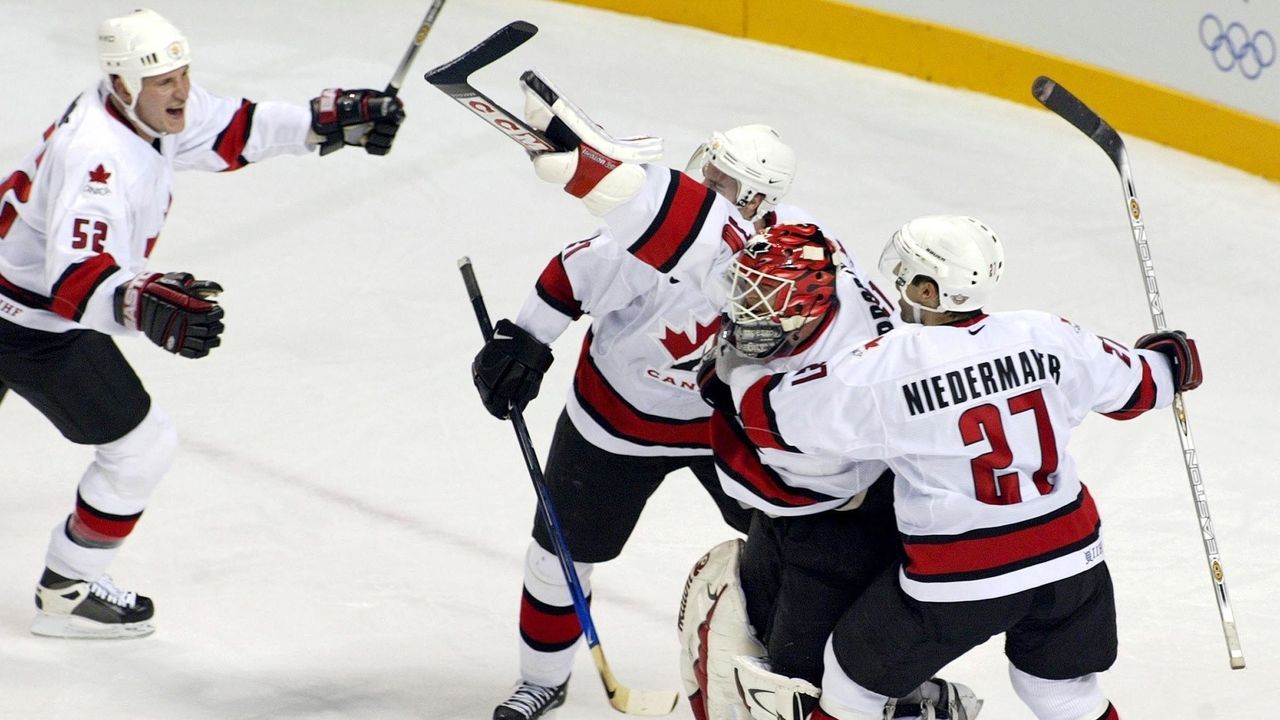
GM: Wayne Gretzky
Coach: Pat Quinn
Finish: Gold
Record: 4-1-1
GF-GA: 23-14
Forwards
| LW | C | RW |
|---|---|---|
| Simon Gagne | Joe Sakic | Jarome Iginla |
| Paul Kariya | Mario Lemieux | Steve Yzerman |
| Michael Peca | Eric Lindros | Owen Nolan |
| Brendan Shanahan | Joe Nieuwendyk | Theo Fleury |
| Ryan Smyth |
Defense
| LD | RD |
|---|---|
| Chris Pronger | Al MacInnis |
| Scott Niedermayer | Adam Foote |
| Ed Jovanovski | Rob Blake |
| Eric Brewer |
Goaltending
| G |
|---|
| Martin Brodeur |
| Curtis Joseph |
| Ed Belfour |
Not putting this squad in the top spot could cause some objection. On paper, it may be the greatest team ever assembled for international play. Excluding Belfour, who didn't see the ice once, it featured 12 Hall of Famers, and that list will grow to 13 once Iginla is eligible.
However, despite all the talent, this team didn't make it look easy until the end of the tournament.
The Canadians struggled in the group stage. Quinn gave Cujo, his goalie with the Maple Leafs, the nod for Game 1. Sweden pummeled Canada 5-2, marking the end of Joseph's tournament. Backed by Brodeur, Canada wiggled away with a 3-2 win over Germany before tying the Czech Republic 3-3 in a '98 semifinal rematch.
In the elimination round, Canada caught a bit of a break. After defeating Finland 3-2 in the quarterfinals, the tournament was primed for a Canada-Sweden rematch in the semis. But in one of the most stunning upsets in Olympic hockey history, Sweden lost 4-3 to Belarus. Tommy Salo was never the same following his dreadful performance.
Canada dismantled the inferior Belarus 7-1 in the semis, saving its best game for the gold-medal tilt against the United States, winning 5-2 for the country's first men's hockey Olympic title in 50 years. The dominant gold-medal performance, which featured Lemieux's legendary through-the-legs phantom assist and Sakic's famous dagger, gives the '02 squad the edge over the '10 team.
But it's no contest for No. 1.
1. Sochi 2014
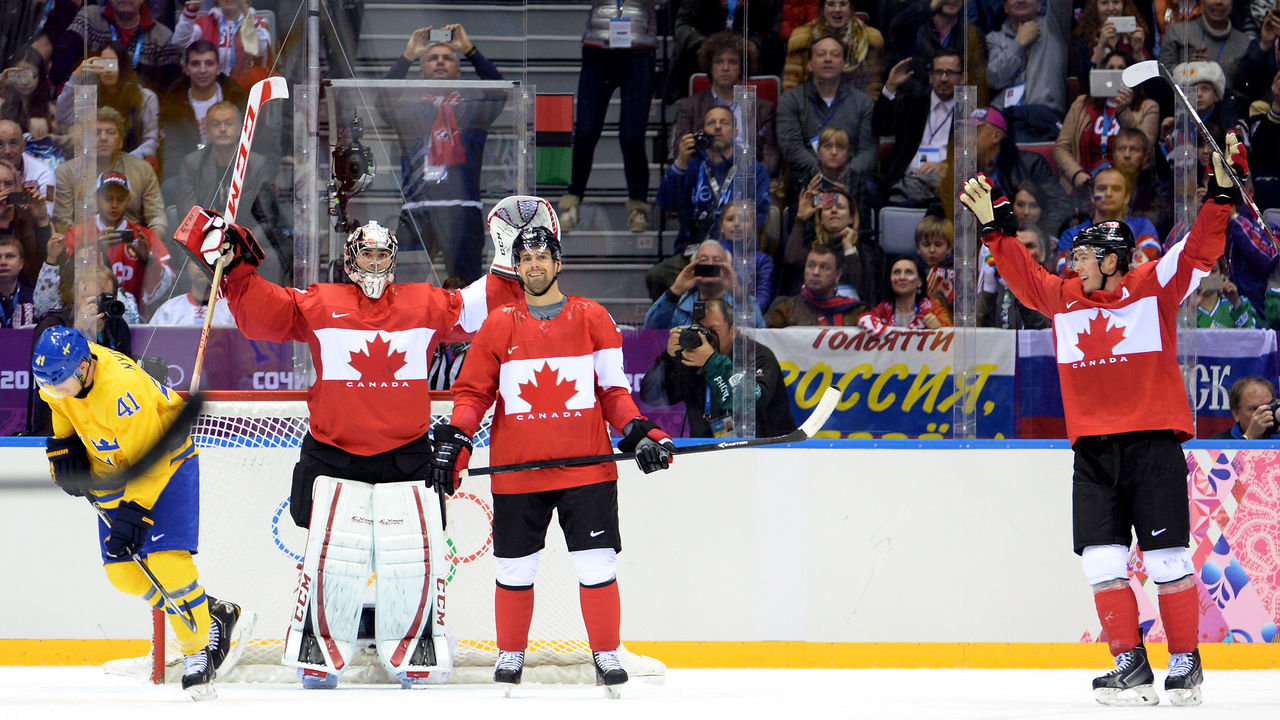
GM: Steve Yzerman
Coach: Mike Babcock
Finish: Gold
Record: 5-1-0-0
GF-GA: 17-3
Forwards
| LW | C | RW |
|---|---|---|
| Chris Kunitz | Sidney Crosby | Patrice Bergeron |
| Jamie Benn | Ryan Getzlaf | Corey Perry |
| Patrick Marleau | Jonathan Toews | Jeff Carter |
| Rick Nash | Matt Duchene | Patrick Sharp |
| Martin St. Louis |
Defense
| LD | RD |
|---|---|
| Duncan Keith | Shea Weber |
| Marc-Edouard Vlasic | Drew Doughty |
| Jay Bouwmeester | Alex Pietrangelo |
| Dan Hamhuis | P.K. Subban |
Goaltending
| G |
|---|
| Carey Price |
| Roberto Luongo |
| Mike Smith |
On paper, this team probably wasn't as good as the squads assembled in '02 or '10. The 2014 gold-medal game was the least memorable too, perhaps due to the time difference in Russia. There was also no postcard or stamp-worthy moment from this tournament, which was probably due to Canada being heavily favored. It was by far the country's least dramatic gold medal.
This team was a well-oiled machine and a defensive powerhouse built for winning, never trailing once the entire tournament. The offense maybe wasn't as good as in past events, but Canada outshot its opponents by an average of 40-22. Price, who owned a .972 save percentage and a 0.59 goals-against average, didn't receive much work. But he was outstanding when called upon, specifically in Canada's 1-0 semifinal win over the U.S., and its 3-0 gold-medal triumph over Sweden.
To make matters even more impressive, Canada had previously struggled at the Winter Games overseas, but that wasn't the case with this team. Moreover, Steven Stamkos was unavailable for the tournament after breaking his leg, and John Tavares injured his knee in the quarters and missed the remaining games.